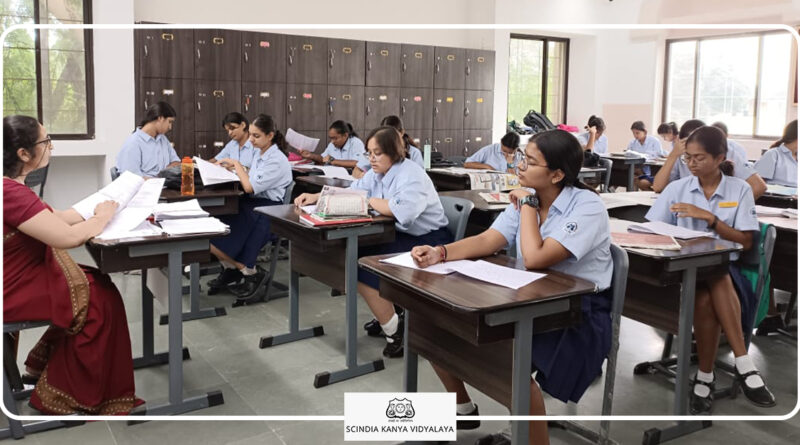Ways to Overcome Challenges Affecting Girl Child Education
Girl child education has always been a topic of great importance in India. For decades, there has been a gender disparity in the education system in the country, with boys receiving more opportunities and better facilities than girls. However, over the years, the Indian government and various NGOs have taken several initiatives to improve the state of girl child education in India. In this blog, we will discuss the current status of girls schooling in India, the importance of girl child education, and the top schools for girls in India.
Education is the most powerful tool for empowerment. It is a basic right for every child, irrespective of gender. Girl child education is especially important as it has a ripple effect on society. Educated women are more likely to have better health, higher earning potential, and make more informed decisions about their lives. When girls are educated, they are less likely to get married at an early age and have children too soon, which in turn improves their own health and that of their children. Educated girls are also more likely to be financially independent and contribute to the economy, thereby improving the overall socio-economic status of the country.
Despite the government’s efforts to improve the education system for girls, there are still significant disparities between boys and girls in India. The enrollment rate for girls in primary schools has increased over the years, but the dropout rate remains high, particularly in rural areas. In many parts of India, girls face cultural barriers that prevent them from receiving an education. These barriers include early marriage, household responsibilities, and a lack of safety in public spaces.
There are many schools in India that cater specifically to the needs of girls. Girls boarding schools and residential schools provide a safe and nurturing environment for girls to learn and grow. These schools offer international curriculum, such as the International Baccalaureate (IB) and Cambridge International Examinations, as well as the Central Board of Secondary Education (CBSE) curriculum.
Scindia Kanya Vidyalaya is one of the best schools for girls in India. Located in Gwalior, Madhya Pradesh, this school is known for its excellent academic record and emphasis on co-curricular activities. The school has a strong focus on girls’ safety and empowerment, with a range of initiatives to promote gender equality and a safe learning environment.
Girls boarding schools and residential schools in India also place a strong emphasis on co-curricular activities and sports. These activities help girls to develop their interpersonal skills, build self-confidence, and learn valuable life skills. Many schools offer a range of sports, including athletics, basketball, football, and cricket. Participation in sports also helps to improve girls’ physical health and overall well-being.
In India, education is considered as a vital tool for personal growth and societal development. However, girls’ education has always been a concern due to various social and cultural factors. Despite numerous initiatives taken by the government and private institutions, girls’ schooling in India still lags behind boys’ education.
Girls’ education is essential for several reasons. It not only empowers them to become self-sufficient and independent but also helps in breaking the cycle of poverty, reducing child marriage, and improving maternal and child health. Moreover, educated girls are more likely to participate in decision-making processes, which promotes gender equality in society.
Girls’ schooling in India is gradually improving, but the numbers are still far from satisfactory. Many girls do not attend school due to societal expectations, financial constraints, and safety concerns. However, with the rise of awareness campaigns and initiatives, the number of girls enrolled in schools is increasing.
Boarding schools have emerged as a popular choice for parents who want their daughters to receive a quality education without compromising on their safety. Girls boarding schools provide a secure and nurturing environment, along with excellent academic and co-curricular opportunities.
Residential schools are another option for girls who are unable to attend regular schools due to geographical constraints or financial issues. Residential schools provide a comprehensive education, including accommodation, meals, and extracurricular activities, and also ensure girls’ safety and well-being.
Safety is a primary concern for parents when it comes to girls’ education. Many girls face harassment and violence while traveling to and from school, which makes them vulnerable and discouraged from pursuing an education. Schools must ensure that their premises are safe and secure, and transportation facilities are provided to ensure that girls can attend school safely.
Girls’ education is a powerful tool for their empowerment. Education provides them with the knowledge, skills, and confidence to make informed decisions and pursue their dreams. Educated girls are more likely to be financially independent and participate in decision-making processes, leading to a more equitable and just society.


